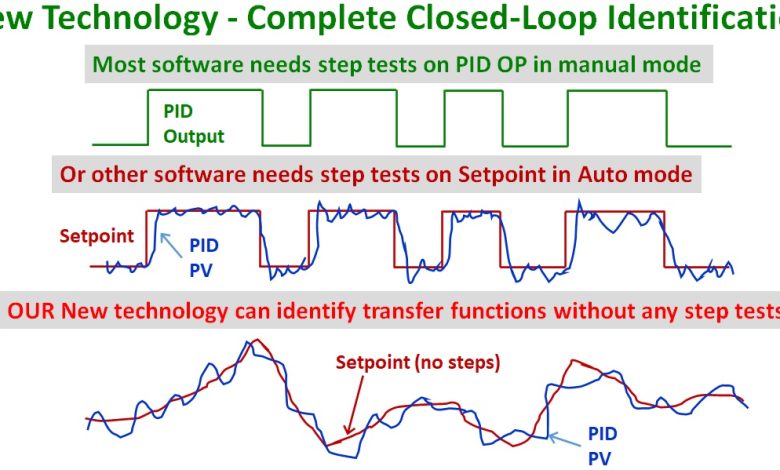
One conspicuous fact about the advanced process control system is it benefits you in many ways.
A process is a series of events that produce some type of change. APC spans the range from manipulating the process variables to performing continuous mathematical calculations on data while controlling the output variables.
What Is Advanced Process Control?
Advanced process control (APC) is a state-of-the-art method of managing and monitoring manufacturing processes. Special APC-based software is usually offered as a combination of hardware, software, and services.
The APC system enables greater visibility into operations and provides more information on how can improve processes. Process control methods offer benefits such as reduced losses, increased productivity, and optimized capacity utilization. Overall, APC provides some great perks for businesses that implement it throughout their organization.
Moreover, advanced processes cover technical design or manufacturing operations where complexity requires greater control than simple manual operations. Process control has emerged as technology has progressed to meet these needs with software advancements, faster computers, and faster networks.
What Are The Important Things You Should Know About Advanced Process Control?
Here are six things you didn’t know about advanced process control:
1) Process automation covers APC
This may sound like common knowledge, but it is imperative to point out that Advanced process control in manufacturing applications differs from general process automation. APC refers to a subset of the overall process automation scope, which includes complete production management.
This process control system also covers MES (Manufacturing Execution System), PLC and SCADA training (Supervisory Control And Data Acquisition), TPM (Total Productive Maintenance), and much more. This particular process control system encompasses all of these elements to manage the entire life-cycle of manufacturing processes—from design through output.
2) Advanced Process Control applies to software advances
Although there are many hardware advancements in specific controllers, it is the software advances driving modern APC systems. Advanced software technology allows manufacturers to monitor their processes more frequently and accurately. Advanced process control software allows for improved mathematical calculations, faster data access, and improved operational capabilities.
3) APC uses a distributed architecture
Historically, APC systems used a centralized network that attached all the elements of the APC system to a central computing device. The process control has evolved from this single point of failure to a more distributed model with multiple servers, each running its CPUs, memory, and operating systems.
In many cases, there is also redundancy at every level and fail-over procedures built-in to protect against downtime in case of any issues within the system.
4) Advanced Process Control uses cloud technology
Advanced Process Control systems in the cloud are allowing manufacturers to outsource their APC infrastructure. The best thing about the APC system is users can view the process control data from any computer, tablet, or smartphone device through web browsers. This system is easier to access remotely and less expensive to run with a pay-as-you-go model.
5) APC improves safety
APC has been shown to improve worker safety in many ways. There are two main reasons for this: First, Advanced process control system software companies specifically design these programs with different data views that focus on specific types of alarms or events. Second, APC platforms have been designed with improved operator interfaces that provide more information and alerts to the operator.
APC software manufacturers also make alarm correlation a focus in their development cycle. The process analyzes alarms and other events to determine which ones are genuinely critical and need immediate intervention.
Also, APC gives operators complete visibility into every device on the network at all times. APC platforms also provide real-time alerting and trending data to help operations see patterns or issues before they become problems.
6) APC increases efficiency
Advanced Process Control systems reduce waste by increasing efficiency across many dimensions. From preventive maintenance scheduling, reducing bottlenecks at various assembly points, to preemptive equipment replacement before it fails, APC takes care of them all.
APC also reduces operating and production costs, and it is a key component of Just-In-Time delivery. The process control will constantly monitor all devices on its network and instantly notify an operator if any device requires attention.
What Makes APC So Special?
By now, you probably know that APC provides multiple benefits.
With all that advanced process control has to offer, it’s surprising that not every company utilizes the technology. Those companies who do use APC, they’re able to automate more tasks than ever before.
Advanced Process Control offers many benefits, and they include:
- Advanced data analysis provides employees with more information on how to improve and optimize processes.
- APC data collection and analysis cultivates better communication between company departments and increases visibility into operations.
- Advanced data collection which uses sensors throughout the manufacturing environment, enables more significant automation tasks than ever before possible.
- APC production planning allows manufacturers to predict future demands easily and react faster when fluctuations in customer orders occur.
These are just some of the top benefits that APC provides. APC is, without a doubt, one of the most beneficial tools available to manufacturers.
Whether your company plans on implementing Advanced Process Control right away or at some point in the future, it’s vital to consider its benefits and crucial factors. Your company can become as streamlined and efficient as possible by implementing APC.